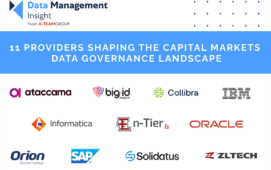Some in the market may be convinced of the benefits of XBRL for the entire corporate actions process (see our interview with BNY Mellon Asset Servicing’s Paul Bodart for example), but not everyone agrees that it is the key to increasing end to end straight through processing (STP) in the space. Christine Strandberg, global product manager for SEB Global Transaction Services, explains to Reference Data Review that SEB is not planning to adopt ISO 20022 messaging in a big way in the near future and elaborates on some of the reservations her firm has regarding XBRL for the asset servicing sector.
SEB follows Swift’s Asset Servicing programme closely, but Strandberg notes that the firm has some concerns about the adoption of XBRL in the space. “The benefits to the securities community of improved asset servicing are indeed substantial, and we welcome Swift’s efforts in the area. We are less assured of the benefits for Swift as a network provider,” she explains.
The firm participates in the Securities Market Practice Group (SMPG) as well as the ISO Securities Standards Evaluation Group, and has therefore been involved in the work that has gone into making ISO 20022 and XBRL compatible for the corporate actions market (see more about the recently published business case for the adoption of XBRL). Strandberg indicates that SEB is pleased with the ISO 20022 messages created for corporate actions, however, she adds: “We are less certain that they will be adopted soon, and have no immediate plans to implement them ourselves (with the exception of the proxy voting messages).” Not a great vote of confidence in the standards.
Strandberg adds that the ISO 15022 messages are still not fully utilised as they should, be and for existing Swift users the willingness to move to ISO 20022 is not great. It seems that despite the work of Swift, the Depository Trust & Clearing Corporation (DTCC) and XBRL US, not everyone in the market is fully convinced of the immediate benefit of moving to these standards in the short term. She does note, however: “This will likely change during the next few years, especially if other central securities depositories (CSDs) join DTCC in implementing ISO 20022 messaging.”
The adoption of ISO 20022 by the securities market as a whole is therefore likely to be predicated on its acceptance and usage by a tipping point of market infrastructures across the globe. This means that Swift’s 2015 strategic focus on market infrastructures is a savvy move on the part of the industry network operator. It will be hard going, however.
“The goal of increasing the number of market infrastructures using Swift has been less successful than desired from a network perspective,” explains Strandberg. “On the other hand, from a strict cost perspective from CSDs, central clearing counterparties (CCPs) and their users this is perfectly understandable.”
She notes that the margins in securities settlement have been decreasing steadily for a number of years, and as long as cheaper alternative communication methods are possible and permitted then it will prove difficult for Swift to increase market penetration. However, she reckons that the work Swift has done together with market infrastructures such as Euroclear and DTCC is a good start and is likely to bring benefits to the entire community.
XBRL itself is limited in the benefits it could bring to the corporate actions space, she adds. “We agree that XBRL could result in significant efficiency increases when processing large amounts of narrative, such as prospectuses. We do not believe, however, that it is the key in increasing STP in corporate actions. Instead, the goal should be to ensure that issuers (and their agents) communicate with market infrastructures (CSDs and/or exchanges) using ISO messages. These can then be distributed throughout the chain of intermediaries easily,” she elaborates.
Certainly, Strandberg’s work as part of the SMPG is aimed at improving the adoption of standards such as these in the world of corporate actions. But, as she noted at a corporate actions event back in April, defining and agreeing standards for the market is merely the start of the process. The real challenge is convincing the market to use the standards.
Subscribe to our newsletter




